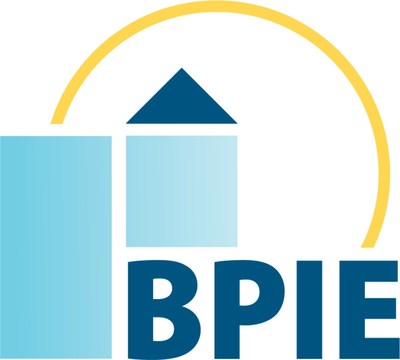BRUSSELS, May 17, 2021 /PRNewswire/ -- The EU's forthcoming legislative revisions for buildings and construction is a critical opportunity to create policy and investment certainty on how energy performance requirements will be supported by carbon performance rules, says BPIE. New research from the think tank shows that while some EU Member States have introduced comprehensive policy action to reduce the carbon footprint of buildings and construction, this should now be coordinated and regulated at European level.

The European Union aims to be climate-neutral by 2050, requiring a fundamental transformation of the construction and building sectors. Direct building CO2 emissions need to more than halve by 2030 to get on track for a net-zero carbon building stock by 20501. In its Renovation Wave strategy2, the European Commission announced its intention to introduce a '2050 whole life-cycle performance roadmap' to reduce carbon emissions from buildings' by 2023.
"For new buildings built to the highest energy efficiency standards, the low operational energy demand means that embodied carbon becomes the most significant source of carbon emissions over the building's lifetime," says Oliver Rapf, Executive Director of BPIE.
Embodied carbon emissions are associated with energy consumption and chemical processes during raw material extraction, manufacture, transportation, assembly, replacement, construction, demolition and disposal of buildings, accounting for approximately 10-20% of EU buildings' CO2 footprint.
To address this 'hidden' carbon footprint, BPIE suggests a common European approach to whole-life carbon (WLC) emissions of the building stock.
Achieving a common EU approach requires intensified coordination across policy measures addressing and affecting the different stages of the construction value chain. BPIE finds that the introduction of a '2050 whole life-cycle performance roadmap', scheduled for 2023, is out of sync with the current legislative review process.
"Policy action taken by a number of Member States demonstrate that whole-life carbon policies are possible and desirable. The European Commission should reflect this in its forthcoming proposals now in 2021 (for example of the Energy Performance of Buildings Directive and the Energy Efficiency Directive), to make sure that we don't lose time in the fight against climate change," Rapf concludes.
Read BPIE's analysis:
BPIE whole-life carbon analysis and early responses from Member States
BPIE Policy briefing providing recommendations for EU action
MEDIA CONTACT
Caroline Milne
Head of Communications, BPIE
caroline.milne@bpie.eu
+32 4 87 54 39 07
About BPIE
BPIE (Buildings Performance Institute Europe) is a leading independent centre of expertise on energy performance of buildings, providing data-driven and actionable policy analysis, advice, and implementation support to decision-makers in the public, private, and non-profit sectors. Founded in 2010, BPIE combines expertise on energy efficiency, renewable energy technologies, and health and indoor environment with a deep understanding of EU policies and processes. A not-for-profit think-tank based in Brussels and Berlin, our mission is to make an affordable, climate-neutral built environment a reality in Europe and globally.
Photo: https://mma.prnewswire.com/media/1510677/BPIE_Carbon_EU.jpg
Logo: https://mma.prnewswire.com/media/1510676/BPIE_Logo.jpg
1https://www.bpie.eu/publication/on-the-way-to-a-climate-neutral-europe-contributions-from-the-building-sector-to-a-strengthened-2030-target/
2https://ec.europa.eu/energy/sites/ener/files/eu_renovation_wave_strategy.pdf


